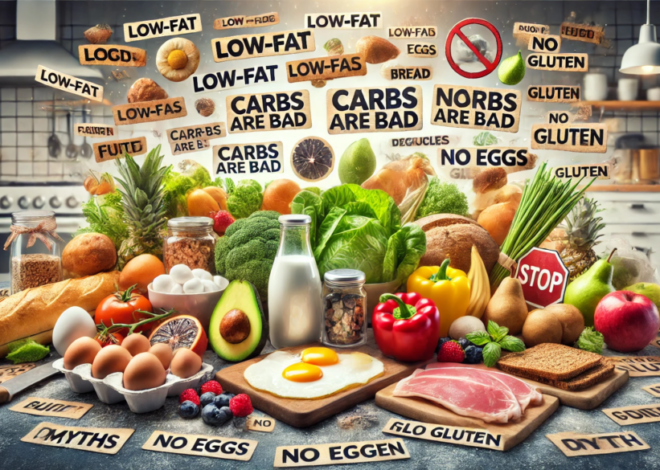
Bone Health: Nutrients Important for Maintaining Strong Bones
Maintaining strong bones is essential for overall health and well-being. Bones provide structure, protect organs, and anchor muscles. As you age, your bones may become weaker, increasing the risk of fractures and osteoporosis. Fortunately, there are several nutrients that can help keep your bones healthy and strong.
Calcium is one of the most important nutrients for bone health. It is the main mineral that makes up bones and teeth. Your body cannot produce calcium, so it must come from your diet. Good sources of calcium include dairy products, leafy green vegetables, and fortified foods such as cereal and orange juice. Vitamin D is also important for bone health, as it helps your body absorb calcium. Your body can produce vitamin D when your skin is exposed to sunlight, but it can also be found in fatty fish and fortified foods.
Other nutrients that are important for bone health include protein, magnesium, phosphorus, and vitamin K. Protein is essential for building and repairing bones, while magnesium and phosphorus work together with calcium to maintain bone strength. Vitamin K helps regulate calcium in the body and may also help increase bone density. Eating a balanced diet that includes a variety of nutrient-rich foods can help ensure that you are getting all of the nutrients your bones need to stay healthy and strong.
Essential Nutrients for Bone Health
To maintain strong bones, you need to consume a variety of nutrients that work together to support bone health. Here are some essential nutrients that you should include in your diet:
Calcium: The Cornerstone of Bone Strength
Calcium is the most important nutrient for building and maintaining strong bones. Your body needs calcium to form the structure of your bones and teeth, and to keep them healthy. Calcium also plays a crucial role in muscle function, nerve transmission, and blood clotting.
Good dietary sources of calcium include dairy products such as milk, cheese, and yogurt, as well as leafy green vegetables, tofu, and almonds. If you don’t get enough calcium from your diet, your body will take calcium from your bones, which can weaken them over time.
Vitamin D: Facilitating Calcium Absorption
Vitamin D is essential for bone health because it helps your body absorb calcium from your diet. Without enough vitamin D, your body can’t use the calcium you consume, which can lead to weak bones and increased risk of fractures.
Your body can make vitamin D when your skin is exposed to sunlight, but you can also get it from foods such as fatty fish, egg yolks, and fortified dairy products. If you live in a northern climate or spend most of your time indoors, you may need to take a vitamin D supplement to ensure you’re getting enough.
Phosphorus: Partnering with Calcium
Phosphorus is another mineral that’s important for bone health. It works in conjunction with calcium to form the mineral crystals that give bones their strength and rigidity. Phosphorus also plays a role in energy metabolism and DNA synthesis.
Good dietary sources of phosphorus include dairy products, meat, fish, poultry, and whole grains. Most people in developed countries get enough phosphorus from their diet, so supplementation is usually unnecessary.
Magnesium: Supporting Bone Density
Magnesium is a mineral that’s involved in many processes in the body, including bone formation and maintenance. It works with calcium and vitamin D to support bone density and prevent osteoporosis.
Good dietary sources of magnesium include leafy green vegetables, nuts, seeds, and whole grains. If you don’t get enough magnesium from your diet, you may need to take a supplement to ensure you’re meeting your daily needs.
In conclusion, consuming a balanced diet that includes these essential nutrients can help you maintain strong, healthy bones throughout your life.
Factors Influencing Bone Health
Physical Activity: The Role of Exercise
Physical activity plays a crucial role in maintaining healthy bones. Regular exercise, especially weight-bearing exercises, helps in building and maintaining bone density. Weight-bearing exercises include activities such as walking, jogging, dancing, and weightlifting. These exercises help in stimulating the bones to absorb more calcium, which is essential for bone health. Additionally, physical activity helps in improving muscle strength, balance, and coordination, which can reduce the risk of falls and fractures.
Hormonal Balance: Estrogen and Testosterone
Hormonal balance is essential for maintaining healthy bones. Estrogen and testosterone play a crucial role in bone health. In women, estrogen helps in maintaining bone density, and its decline after menopause can lead to bone loss and osteoporosis. In men, testosterone helps in building and maintaining bone density. Hormonal imbalances, such as low estrogen or testosterone levels, can lead to a higher risk of osteoporosis and fractures.
Age-Related Changes in Bone Health
As you age, your bones undergo several changes that can affect bone health. Bone loss occurs naturally as you age, and the rate of bone loss can increase after menopause in women. Additionally, the production of hormones that are essential for bone health, such as estrogen and testosterone, decreases with age. These changes can lead to a higher risk of osteoporosis and fractures. However, regular exercise and a diet rich in calcium and vitamin D can help in maintaining bone health and reducing the risk of fractures.
In conclusion, maintaining healthy bones is essential for overall health and well-being. Regular physical activity, hormonal balance, and a healthy diet are crucial for maintaining bone health. By incorporating these factors into your lifestyle, you can reduce the risk of osteoporosis and fractures and maintain strong and healthy bones.
Frequently Asked Questions
What vitamins and minerals are essential for bone health?
Several vitamins and minerals are essential for maintaining strong bones. Calcium, vitamin D, and magnesium are the most important nutrients for bone health. Calcium is a mineral that forms the structure of bones and teeth. Vitamin D helps the body absorb calcium, and magnesium is important for bone formation. Other important nutrients include vitamin K, vitamin C, and zinc.
What dietary changes can strengthen bones and joints?
Eating a balanced diet rich in bone-supporting nutrients can help strengthen bones and joints. You should consume adequate amounts of calcium, vitamin D, and magnesium. Foods that are rich in these nutrients include dairy products, leafy green vegetables, nuts, and seeds. Additionally, consuming foods that are high in vitamin K, vitamin C, and zinc can also help support bone health.
How can bone and joint strength be improved through natural means?
There are several natural ways to improve bone and joint strength. Exercise is one of the most effective ways to increase bone density and strengthen bones and joints. Weight-bearing exercises, such as walking, jogging, and climbing stairs, are particularly effective. Additionally, getting enough vitamin D and calcium through diet and supplements can also help improve bone and joint strength.
Which foods are known to enhance bone strength?
Foods that are high in calcium, vitamin D, and magnesium are known to enhance bone strength. Dairy products, leafy green vegetables, nuts, and seeds are all good sources of these nutrients. Other foods that can help support bone health include fatty fish, eggs, and fortified cereals.
What is the most critical nutrient for bone repair and healing?
Calcium is the most critical nutrient for bone repair and healing. It is the primary mineral that forms the structure of bones and teeth. When bones are damaged, calcium is needed to help repair and rebuild them. Vitamin D is also important for bone repair and healing, as it helps the body absorb calcium.
How much time is typically required to increase bone density?
The amount of time required to increase bone density varies depending on the individual and the type of exercise performed. Generally, it takes several months of regular exercise to see an increase in bone density. It is important to continue exercising regularly to maintain and improve bone density over time.











